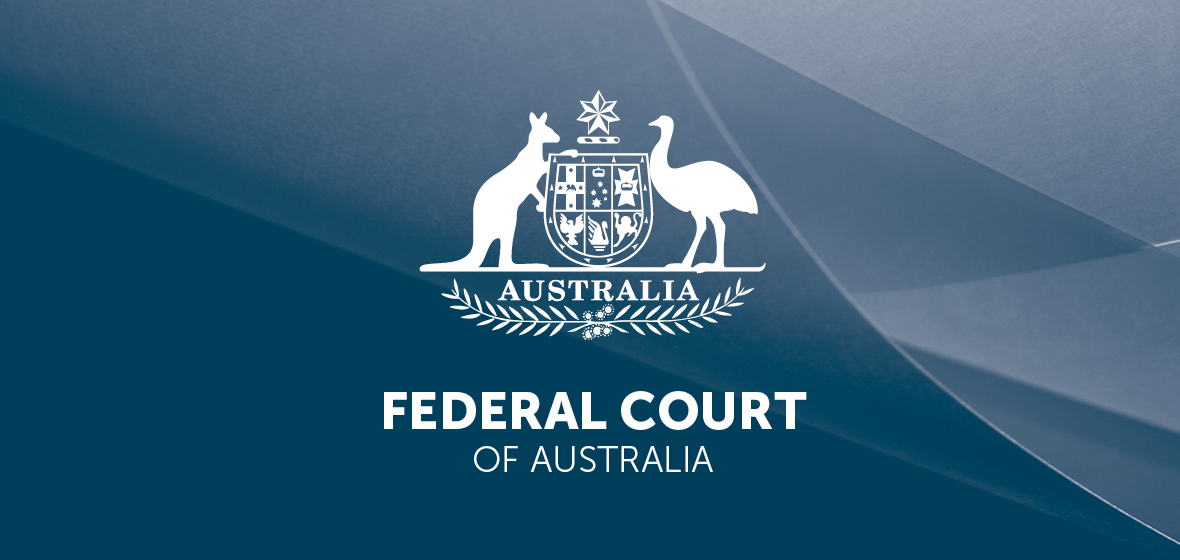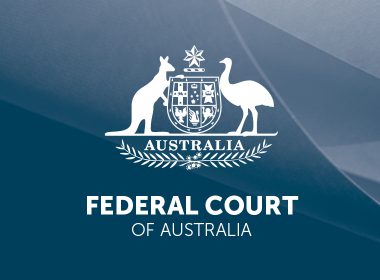Key decisions
- El-Debel v Micheletto (Trustee) [2021] FCAFC 117
- Epic Games, Inc v Apple Inc [2021] FCAFC 122
Bankruptcy
Appeals from decision finding whole or part of interests in properties held on resulting trust for bankrupt – properties registered in names of parties associated with bankrupt – whether bankrupt provided all or part of purchase price – presumption of resulting trust
El-Debel v Micheletto (Trustee) [2021] FCAFC 117 (30 June 2021) (Markovic, Derrington and Colvin JJ).
Background: The trustees of the bankrupt estate of Mr Bachar El-Debel (‘Current Trustees’) alleged that all or part of the purchase price for four parcels of land registered in the names of parties associated with the bankrupt had been provided by him and therefore the whole or part of the interests of those associated parties in the properties were held on resulting trust for the bankrupt and was property divisible among the creditors of the bankrupt.
Two appeals were brought against the decision by the primary judge who upheld the claims of the Current Trustees. The first appeal, brought by the bankrupt, his wife and his mother, was confined to discrete points of law while the second appeal, by a company associated with the bankrupt, challenged the inferential reasoning process used by the primary judge in upholding the claims by the Current Trustees.
The decision provides a timely and helpful reminder of the principles concerning resulting trusts, including the circumstances in which a presumption of a resulting trust will be rebutted, the proper approach to factual findings on appeal and guidance as to the process of inferential reasoning.
Principles concerning resulting trusts: The legal reasoning by the primary judge as to the principles to be applied in determining whether property is held on resulting trust was accepted as being correct by all parties to the appeals. This reasoning was:
- a presumption of a resulting trust arises where one person provides the purchase price of property which is conveyed into the name of another person;
- in deciding whether a presumption of a resulting trust has been rebutted the Court must reach a conclusion on the whole of the evidence;
- the presumption of a resulting trust may be rebutted by evidence which manifests an intention to the contrary, but should not give way to slight circumstances;
- the extent of the beneficial interest of the parties arising by reason of a resulting trust must be determined when the property was purchased;
- it is the intention of the person who provides part of the purchase price that is relevant when considering whether the presumption may be displaced by contrary evidence;
- if part of the purchase price is provided by being borrowed on a mortgage, the presumption of a resulting trust is applied by treating the moneys raised by the mortgage as a contribution by the person who is liable to repay that money.
Proper approach to factual findings on appeal: To succeed, an appellant must demonstrate an error of law or an error infecting a finding of fact (see Branir Pty Ltd v Owston Nominees (No 2) Pty Ltd [2001] FCA 1833; (2001) 117 FCR 424 at [20]-[30] and Aldi Foods Pty Ltd v Moroccanoil Israel Ltd [2018] FCAFC 93; (2018) 261 FCR 301 at [45]-[53]).
Where factual error is alleged, an appellate court must show restraint with respect to interference with such primary or secondary factual findings by the trial judge as were likely to have been affected by the trial judge’s impressions as to witness credibility or reliability; an appellate court should only interfere with factual findings of this kind where the factual findings were ‘glaringly improbable’ or ‘contrary to compelling inferences’. Subject to this, an appellate court is in as good a position as the trial judge to decide on the proper inference to be drawn from facts which are undisputed or which, having been disputed, are established by the findings of the trial judge (Lee v Lee [2019] HCA 28; (2019) 266 CLR 129 at [55]).
The process of inferential reasoning: Although permissible inference and mere conjecture exist on a continuum, there is a distinction between them (Seltsam Pty Ltd v McGuiness [2000] NSWCA 29; (2000) 49 NSWLR 262 at [84]).
An inference is a tentative or final assent to the existence of a fact which the drawer of the inference bases on the existence of some other fact or facts. ‘It is a process that requires the application of general human experience to determine whether the hypothesis that is sought to be proved is a conclusion that can be drawn given the alternatives that reasonably may be suggested and the standard of proof required.’ In a civil case, a permissible inference is one which is more probable on the evidence. However, where two or more competing inferences are equally probable on the evidence, the choice between them is mere conjecture, and is not permissible reasoning (Morgan v Babcock & Wilcox Ltd (1929) 43 CLR 163 at 173; G v H (1994) 181 CLR 387 at 390).
The result: As to the first appeal, the Court found:
- the primary judge was in error in failing to bring to account a finding that the bankrupt had not been shown to have provided a one-fifth interest in one of the properties;
- whether one of the properties was held on resulting trust for the trustees of the bankrupt’s earlier bankruptcy was a procedural issue only, as an exchange of correspondence between the Current Trustees and the earlier trustees in bankruptcy disclosed that the earlier trustees were content for the Current Trustees to make any claim to a resulting trust for the relevant property on the basis that it was property of one or other of the bankrupt estates. It could be accommodated by upholding the appeal to a limited extent and amending the relief to reflect the nature of the informal procedure that had been adopted between the two sets of trustees.
The first appeal was otherwise dismissed.
As to the second appeal, the Court rejected the contention that the reasoning of the primary judge went beyond the evidence and was based on inferences that were not open. It was upheld to a limited extent as there was insufficient evidence to support a conclusion that moneys in the nature of a deposit were provided by the bankrupt and an associate. Accordingly, the calculation of the percentage interest of the resulting trust in relation to that property required some minor adjustment.


